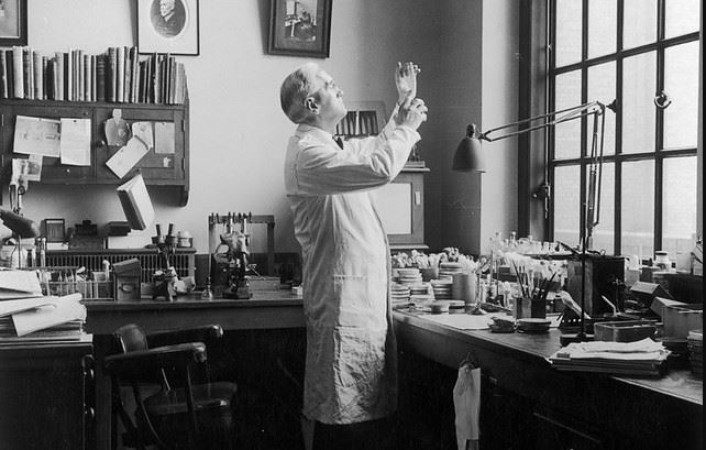
Antibiotics have been a cornerstone of modern medicine, saving countless lives by treating bacterial infections that were once fatal. Among the most significant discoveries in medical history is the advent of penicillin, the first antibiotic. This article explores the remarkable journey of penicillin, from its accidental discovery to its widespread use and the profound impact it has had on medicine and human health.
The Pre-Penicillin Era
Before penicillin, infections posed severe threats to human life. Common illnesses that are treatable today were often deadly in the past. People faced the risk of succumbing to bacterial infections without effective treatment options.
The limited medical arsenal of the pre-penicillin era necessitated the urgent search for an alternative solution that could combat infectious diseases effectively.
The Discovery of Penicillin
The story of penicillin begins with Scottish biologist and pharmacologist, Alexander Fleming. In 1928, Fleming made a groundbreaking observation while working at St. Mary's Hospital in London. He noticed that a petri dish containing Staphylococcus bacteria had developed mold, and the area around the mold was clear of bacterial growth.
Fleming identified the mold as a strain of Penicillium and recognized its potential as a potent antibacterial agent. This serendipitous event led to the discovery of penicillin's antibiotic properties.
The Initial Challenges
Despite Fleming's promising findings, the initial steps towards harnessing penicillin's potential faced numerous challenges. Isolating penicillin in pure form for medical use was a demanding task that required significant effort and expertise.
Additionally, the lack of adequate funding and support hindered the progress of research on penicillin. However, the perseverance of researchers and scientists eventually led to a breakthrough.
Florey and Chain's Breakthrough
In the early 1940s, a team of scientists led by Howard Florey and Ernst Chain made significant progress in purifying penicillin. Their collaborative efforts and determination allowed for mass production of the antibiotic, marking a turning point in medical history.
Penicillin's Role in World War II
During World War II, penicillin played a crucial role in saving the lives of wounded soldiers. The widespread use of penicillin on the battlefield significantly reduced mortality rates from infections, allowing injured soldiers to recover and return home.
The Revolution of Antibiotics
Penicillin's discovery revolutionized medical practices. Antibiotics became a cornerstone of modern medicine, transforming healthcare and prolonging human life. The ability to treat bacterial infections effectively also opened doors for complex surgeries and medical procedures that were previously risky due to the high risk of infection.
Penicillin-Resistant Bacteria
Over time, the misuse and overuse of antibiotics led to the emergence of penicillin-resistant bacterial strains. This phenomenon raised concerns about antibiotic resistance, emphasizing the importance of responsible antibiotic use and ongoing research to combat resistance.
Other Antibiotics and Medical Advancements
Following the success of penicillin, scientists discovered and developed a wide range of other antibiotics. These medical advancements expanded the arsenal of antibiotics available to healthcare professionals, further enhancing the ability to combat bacterial infections.
Penicillin's Global Impact
The availability and widespread use of penicillin have had a significant impact on public health worldwide. Mortality rates from infectious diseases plummeted, and life expectancy increased as a result of effective antibiotic treatment.
Ethical Considerations
As the use of antibiotics became widespread, ethical considerations arose. The responsible use of antibiotics and avoiding overprescription became critical to prevent further antibiotic resistance and preserve the effectiveness of these life-saving drugs.
Future of Antibiotics
Research and development efforts continue to explore new antibiotics and alternative approaches to combat antibiotic resistance. Scientists and medical professionals are working together to ensure a future where antibiotics remain effective in the face of evolving bacterial threats.
The discovery of penicillin stands as one of the most remarkable milestones in medical history. From its accidental discovery by Alexander Fleming to its global impact on healthcare, penicillin's story is a testament to the power of human ingenuity. It has saved countless lives, transformed medical practices, and paved the way for a brighter and healthier future.
Govt Action Looms for Twitter after Viral Video of Manipur Women Paraded Naked
Manipur Unrest: CM Urges Thorough Probe into Viral Video's Authenticity
Sonia Gandhi Urges PM Modi for Manipur Discussion in Parliament